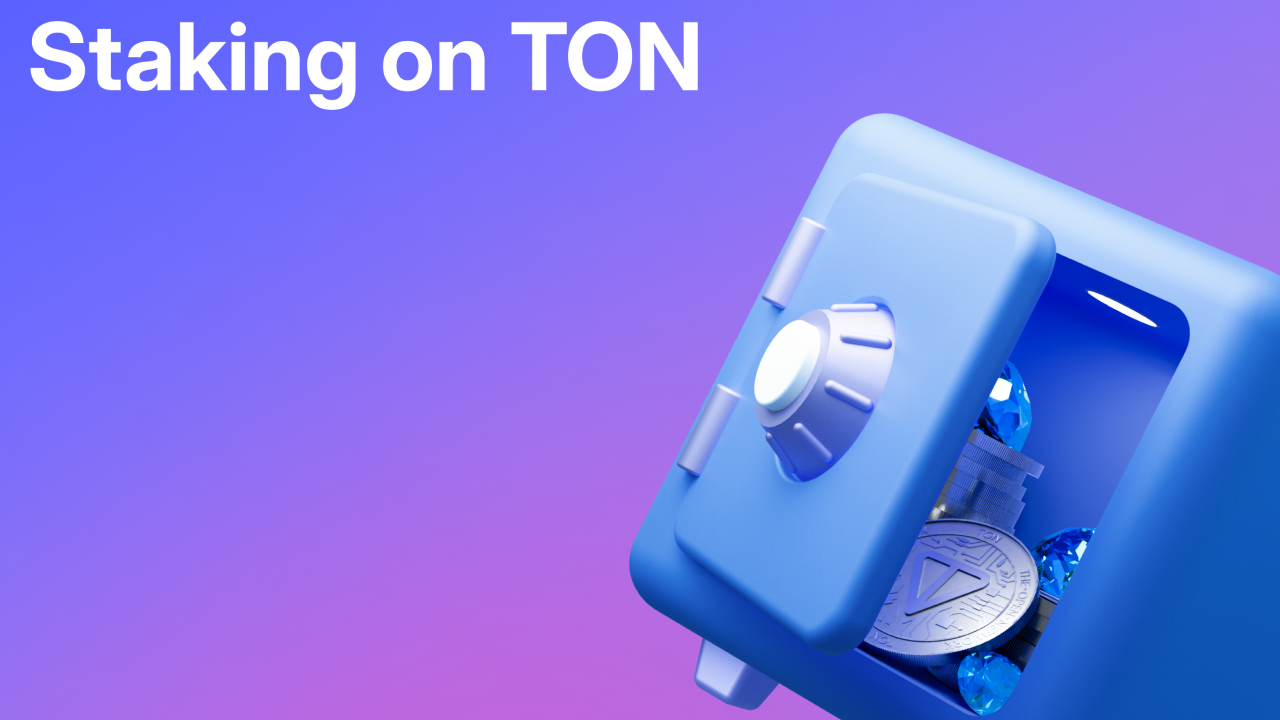
Unlocking Rewards with TON Staking
TON’s ecosystem projects across DeFi, SocialFi, and GameFi are positioned for significant success, thanks to the blockchain’s direct access to Telegram’s extensive user base of about 800 million monthly active users. With unparalleled scalability and shardability, TON provides a competitive edge to any project within its network.
A core promise of cryptocurrency has been to transform traditional banking systems. A fundamental service of traditional finance is the secure and efficient storage of assets, a concept now reimagined for Web3 through TON staking.
What is Staking on TON?
TON Blockchain utilizes a Proof-of-Stake (PoS) consensus mechanism to ensure network security and consensus. This model is more energy-efficient compared to Bitcoin’s Proof-of-Work (PoW) system. Unlike PoW, which relies on miners solving complex algorithms, PoS selects validators based on the amount of cryptocurrency they lock up as collateral.
In essence, the more cryptocurrency you stake, the higher your chances of being chosen as a validator. This system incentivizes validators to act in the network’s best interest, as their investment aligns with maintaining network integrity. For a detailed guide, refer to the full documentation here.
To add a transaction to the TON Blockchain, it must receive unanimous approval from all validators. Users pay a small transaction fee, which compensates the validators for their role in achieving consensus. This fee, along with any new coins minted during the validation process, is distributed among validators based on their stake and contributions.
Anyone interested in securing the network can become a validator, though typically a minimum stake of 600,000 TON is required. To make participation more accessible, TON offers staking services that allow average holders to pool their resources and earn rewards collectively. This makes network security open to everyone.
Pooling is usually facilitated by independent smart contracts and DAOs, which manage deposits and distribute rewards. Within the TON Ecosystem, several reputable projects provide these services, offering a secure and efficient staking experience.
Ton Whales
Ton Whales was the pioneer in offering decentralized staking on the TON Blockchain, attracting over 9,000 users who have collectively staked approximately $62 million. They have distributed around 1,132,103 TON in rewards to their users. Ton Whales maintains transparency by keeping their smart contract and DAO open-source, allowing users to verify operations themselves. The platform ensures smooth operations with continuous monitoring.
Ton Whales provides various staking pools with different requirements and conditions, boasting annual percentage yields (APY) from approximately 4.05% to 5.85%. They have integrated their staking services within several TON wallets, including Tonkeeper, for user convenience.
Tonstakers
Tonstakers offers a liquid staking protocol that allows users to stake their TON while still utilizing their assets within the TON Ecosystem. By staking with Tonstakers, users receive tsTON tokens, which represent their share in the staking pool and can be used across DeFi applications. Users can exchange tsTON back to Toncoin, along with accumulated yield, at their discretion.
As of March 6, 2024, Tonstakers has over 23,000 participants and $69.7 million staked, with an APY of up to 5% for the year ending December 31, 2023. Developed in collaboration with TON core developers, the platform features open-source contracts and has been audited by Certik. Tonstakers operates on a non-custodial basis, ensuring users retain control of their assets. Their services are available through a Telegram Mini App and integrated within TON wallets like Tonkeeper.
bemo
bemo is another liquid staking service featuring a Telegram Mini App. By staking with bemo, users earn stXP (Staking Experience Points), which will convert to $BMO tokens in Q4 2024. Up to 20% of $BMO tokens will be distributed to stXP holders, with higher balances receiving more tokens.
bemo offers a flexible staking experience, allowing users to earn stXP and manage their stakes through the Telegram Mini App. The platform has been audited by Certik and TonTech, and reports an APY of 4.02% for 2023.
Hipo
Hipo offers a decentralized liquid staking solution, providing daily rewards from the start of staking. Participants receive hTON tokens, representing their staked TON, which can be used across the DeFi ecosystem. Hipo aims to maximize rewards through efficient deployment of staked TON and offers an easy unstaking process. Currently, nearly 1 million Toncoin is staked on Hipo. The platform has undergone audits by TonTech and Daniil Sedov.
Embrace the Future with TON Staking
TON staking presents an exciting opportunity for users to engage in the decentralized digital economy. With various staking options, including traditional and liquid staking, TON enables users to earn cryptocurrency passively with flexibility and security. Through advanced smart contracts and DAOs, TON is fostering a more inclusive and efficient financial system, demonstrating how blockchain technology can democratize access to financial investments and rewards.
Disclaimer: References to products or services in this blog do not imply endorsement. Cryptocurrency markets are volatile, and staking protocols may not always meet expectations. Readers should conduct their own research and seek professional advice. We are not liable for financial decisions or losses incurred.